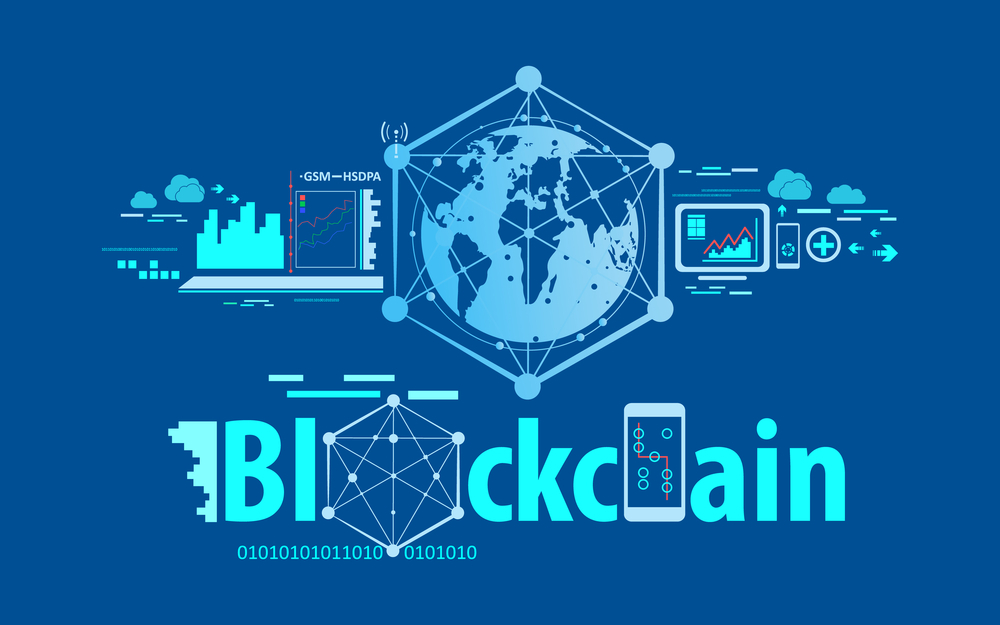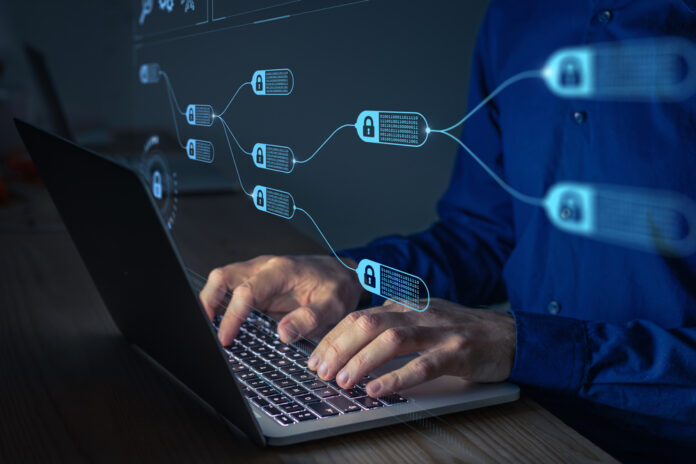A blockchain is a shared distributed database or ledger between computer network components. A blockchain serves as a computer database for storing data in digital form. The most well-known use of blockchain technology is for keeping a secure and decentralised record of transactions in cryptocurrency systems like Bitcoin. The innovation of a blockchain is that it fosters confidence without the need for a reliable third party by ensuring the fidelity and security of a record of data.
The way the data is organised in a blockchain differs significantly from how it is typically organised. In a blockchain, data is gathered in groups called blocks that each contain collections of data. Blocks have specific storage capacities, and when full, they are sealed and connected to the block that came before them to create the data chain known as the blockchain. Every new piece of information that comes after that newly added block is combined into a brand-new block, which is then added to the chain once it is full.
Accounting and blockchain.
Blockchain is a tool used in accounting. It is focused on transferring possession of assets and keeping a record of precise financial data. The measurement, communication, and analysis of financial information fall under the wide purview of the accounting profession. A large portion of the field is concerned with determining or evaluating rights and obligations regarding property or with strategizing the most efficient use of financial resources. By giving accountants clarity over who owns what and whether there are responsibilities, blockchain technology has the potential to significantly increase productivity. By lowering the cost of maintaining and reconciling ledgers and supplying complete certainty regarding the ownership and history of assets, blockchain has the potential to improve the accounting industry. By allowing resources to be focused on planning and valuation rather than recordkeeping, blockchain could help accountants better understand the resources and responsibilities of their organisations.
Blockchain could also allow for increases in the scope of accounting by removing reconciliations and supplying assurance over transaction histories. This would allow for the consideration of more areas that are currently thought to be too difficult or unreliable to measure, such as the value of the data that a company holds.
Blockchain will encourage an increase in the amount of transactional-level bookkeeping that is done, but not by accountants, in conjunction with other automation trends like machine learning. Instead, those accountants who focus on evaluating the true economic interpretation of blockchain records and marry the record to economic reality and valuation will be effective. For instance, while blockchain may confirm the presence of a debtor, its recoverable value and economic worth are still up for discussion. And while the ownership of an object can be confirmed using blockchain records, its state, location, and actual value still need to be established.

Bookkeeping and accounting tasks can be replaced by blockchain. This may put those accountants’ jobs in jeopardy while strengthening those who are working to contribute value in other areas. For instance, distributed consensus over key figures in mergers and acquisitions due diligence provides for a quicker process overall and more time to be spent on advisory and judgmental tasks.
How blockchain can advance the industry.
The transition to a financial system with a sizable blockchain component opens up numerous possibilities for the accounting industry. Accountants are regarded as authorities in standard-setting, business logic, complicated rule application, and record keeping. They have the chance to direct and shape how blockchain is integrated and used in the future, as well as to create blockchain-powered products and services.
Accountants can also serve as consultants for businesses thinking about utilising blockchain technology, helping them evaluate the benefits and drawbacks of the new technology. Due to their combination of business and financial expertise, accountants will be in a prime position to advise businesses seeking to capitalise on these emerging technologies.
Blockchain needs to be created, standardised, and optimised in order to be a true component of the financial system. Since there is still much to be done and it has already been nine years since the inception of bitcoin, this procedure is likely to take many years. In this area, there are numerous blockchain apps and start-ups, but very few have advanced past the proof of concept or pilot study stage. Although accountants are already taking part in the study, there is still more work to be done. Leading accounting firms and bodies can contribute their knowledge to the development of regulations and standards to cover blockchain, which will be no easy task.
CPAs and blockchain.
Greater attention can be paid to how to account for and consider the transactions, and more areas can be accounted for, thanks to the decreased need for reconciliation and dispute management and the increased certainty surrounding rights and duties. By using blockchain and other cutting-edge technologies like data analytics or machine learning to optimise many present accounting department processes, the accounting function will become more effective and valuable.
Accountants won’t need to have in-depth understanding of blockchain technology or be engineers. However, they will need to be able to offer advice on blockchain adoption and take into account how blockchain will affect their clients and their companies. They must also have the communication skills to serve as a bridge between business partners and technologists. It will be necessary for accountants to broaden their skill sets to include knowledge of blockchain’s fundamental characteristics and operations.



